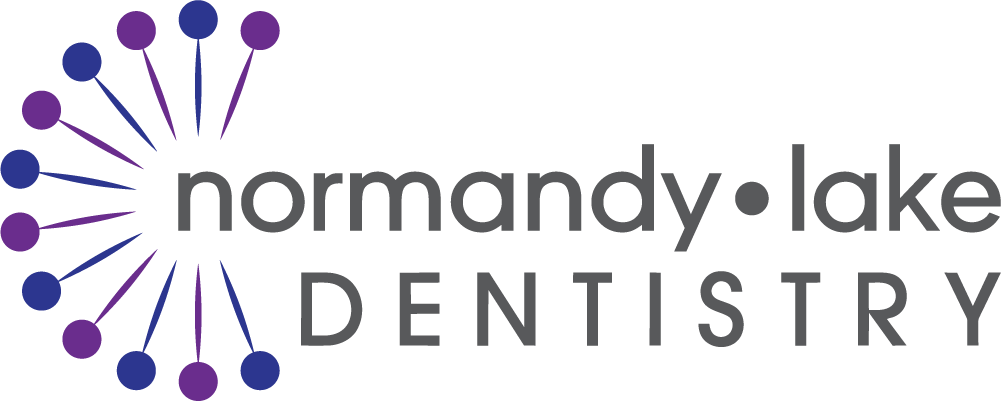How Much Toothpaste to Use?
Ever wonder how much toothpaste you should use? Here is a quick video that goes over a few tips about brushing.
Take Care of Your Teeth with Regular Dental CheckupsTooth Decay & How to Prevent Cavities
Cavities, often referred to as tooth decay, are tiny holes that develop in the hard surface of your teeth. They are most common in children and teenagers, but they can affect everyone including infants and toddlers. Take a closer look at what causes cavities and how you can prevent them.
Causes of Cavities
Cavities typically occur as a result of poor oral health habits but other various factors can increase the risk of getting a cavity, including:
- Dry mouth. Dry mouth occurs when there is a lack of saliva in the mouth. Saliva helps wash away food stuck on the teeth and it counters the acid produced from bacteria in the mouth, which reduces the chance for cavities.
- Foods and drinks. Certain foods aren’t as easily washed away from saliva, making them more likely to cause decay. Foods you should limit include: ice cream, honey, sugar, soda, cake, chips, cookies, and hard candy.
- Constant snacking or sipping. Drinking or eating frequently throughout the day results in increased bacteria in your mouth. This bacteria produces the acids that attack tooth enamel.
- Lack of fluoride. Fluoride is a natural mineral that helps prevent cavities and can reverse the early stage of tooth decay. Using a fluoride mouthwash is recommended.
Cavity Prevention
Regular dental visits and daily brushing and flossing are the best protection against cavities. But, cavities left untreated get larger and larger, affecting the deeper layers of your teeth. Deeper cavities result in higher chances of experiencing severe toothache and infection. So, when it comes to cavities, prevention is key. Below are some of our cavity preventions tips:
- Brush with fluoride toothpaste. Brush and floss twice a day, ideally after each meal.
- Visit your dentist for regular checkups and cleanings. Professional teeth cleanings remove plaque that builds up overtime which isn’t removed by regular brushing and flossing. Going to the dentist twice a year is one of the best cavity prevention options.
- Dental sealants. Sealants protect the tooth enamel from harmful plaque and bacteria.
What are Dental Sealants and are They Worth It?
Oral Health Tips For Seniors
No matter your age, good dental hygiene is important in minimizing the chance of cavities and other oral health problems. As you age, it becomes even more critical that you care for your teeth. Even more so if you have a health condition such as heart disease or diabetes. Normandy Lake Dentistry is here to help you prevent oral health problems throughout every stage of life. Below are just a few of our oral health tips for seniors and caring for your teeth as you age.
Maintain regular dental visits
Getting your teeth and gums checked regularly is very important, even if you wear dentures, catching any oral health problems early and helping prevent future issues. Keep in mind that Medicare doesn’t pay for routine dental care so you may want to look into private dental insurance.
Brush, floss, and rinse daily
Brushing and flossing each day with a fluoride toothpaste and rinsing with an antibacterial mouthwash removes plaque from your teeth and reduces the chances of tooth decay or gum disease.
Watch for changes in your mouth
Your risk of getting oral cancer increases with age. If you see any spots, lumps, white or red patches, or if you’re experiencing difficulty swallowing or chewing, numbness on your tongue, or swelling of your jaw—contact us right away.
Avoid tobacco
According to the CDC “smoking tobacco products (including cigarettes and cigars) causes almost nine of every 10 cases of lung cancer, but smoking can cause cancer almost anywhere in your body”, including the mouth and throat.
Ask your doctor about dry mouth
Dry mouth is the result of not having enough saliva to keep your mouth wet, and makes it harder to talk, eat, and swallow. If your medication is causing dry mouth, ask your doctor if there is any substitution that doesn’t produce dry mouth.
Care for your dentures
Dentures require special care, including using a deep-cleaning solution to soak off food remnants from the denture. Dentures can make life easier for many seniors, but you have to keep up with their care.
Caring for your teeth as you age doesn’t have to be challenging! We’re here to help with any questions or concerns you may have about aging and oral health. Contact us today.
Taking Care of Your Teeth as You AgeIs A Custom Mouth Guard Right For Me?
Mouth guards are not a one-size-fits-all solution. Even though mouth guards may look similar, they can provide different functions. They can be used for preventing teeth grinding, reducing snoring, sleep apnea relief, and protecting your mouth when playing sports. There are three different types of mouth guards: stock, boil and bite, and custom. Learn more about each option from our mouth guards service page.
Prevent Teeth Grinding
Teeth grinding can cause soreness, tenderness, and tightness in the muscles of the jaw, neck, and face, commonly resulting in tension headaches. Mouth guards worn while you sleep prevent the bottom and top teeth from clenching together so damage does not occur. Custom mouth guards are recommended to prevent teeth grinding because they provide the best fit for your teeth, last longer over time than stock or boil and bite mouth guards, and will be the most comfortable option for you while you sleep.
Reduce Snoring or Sleep Apnea Relief
Snoring occurs when air flows past the relaxed tissues in your throat, causing the tissues to vibrate when you breathe. While sleep apnea is a sleep disorder that occurs when a person’s breathing is interrupted during sleep. There are two different types of mouth guards, or oral appliances that can be used for snoring and/or sleep apnea:
Mandibular advancement device (MAD): This works by pushing the lower jaw forward to open your airway while you sleep.
Tongue retaining device: This works by gripping your tongue to prevent it from falling into the back of the throat.
These oral appliances must be fitted by a dentist and worn in your mouth at night. There are many over the counter mouth guards that claim to prevent snoring or help sleep apnea, but the best course of action is to consult with your dentist or doctor to see what is right for you.
Sports Mouth Guards
Sports mouth guards can help prevent damage to the face and minimize the risk of broken teeth or injuries to your face, jaw, tongue, and lips. Certain sports have higher risks than others. It is very important to wear a mouth guard if you play any of the following sports: football, boxing, hockey, or wrestling. Basically, when it comes to mouth guards, the better the fit, the better the protection. Stock mouth guards are the least expensive option for protecting your teeth while playing sports. Boil and bite mouth guards are slightly more expensive but they provide a better fit, reducing the risk of injury. Custom mouth guards will provide the most protection as they will have the best fit/coverage of your mouth.
We know you have many options for mouth guards, if you are not sure if a mouth guard will help you or if you would like a custom-fit mouth guard consultation, contact us today!
What are Dental Sealants and Are They Worth It?
By Dr. Joseph Lee
When you get a brand new cell phone, do you purchase a case to protect it? What if you knew with 90% certainty that you would drop your phone? As you probably already guessed, most people purchase some type of protection for their phone. It just makes sense.
Well, according to a study from the National Institute of Dental and Craniofacial Research, 92% of adults have had a cavity in their permanent teeth. In other words, 9 out of 10 people will get a cavity! Those are some pretty stacked odds.
Like a brand new cell phone, your teeth also come unprotected and as the research points out, without intervention the odds are super high that decay will happen.
Fortunately, sealants can seal and protect the natural pits and grooves of the teeth with a curable resin and help prevent cavities from starting. In fact studies have shown sealants to reduce cavity risk by over 70%! Waiting until after a cavity forms to do something will cost you at least 4 times more than a sealant. It’s also good to know that sealants do wear out and your teeth will need to be re-sealed from time to time. So the next time you visit your dentist, ask them if sealants would be a good fit for you.
To schedule your next appointment with Normandy Lake Dentistry, contact one of our three convenient locations.
Pediatric Dental CareHow to Prevent the Gum Disease Known as Gingivitis
When it comes to your mouth’s health, it’s not only about having straight, white teeth. Having healthy gums is also a huge part of your oral well-being. Even if you are cavity free, it doesn’t always mean your gums are healthy.
One form of gum disease is called Gingivitis. It’s important to take gingivitis seriously as it can lead to much more serious gum issues, like periodontitis and tooth loss, if left untreated.
What is Gingivitis?
Gingivitis means inflammation of the gums, or gingiva. It commonly occurs because a film of plaque accumulates on the teeth. There are typically two types of gingivitis:
- Dental plaque-induced gingival disease: This type of gingivitis can be caused by plaque, systemic factors, medication or malnutrition
- Non-plaque induced gingival lesions: This can be caused by specific bacterium, virus, or fungus. It might also be caused by genetic factors, systemic conditions (including allergic reactions and certain illnesses), wounds, or foreign bodies such as dentures.
When plaque is not removed adequately, it can harden into tartar near the base of the teeth, near the gum. This has a yellowish color and can only be professionally cleaned and removed. This type of plaque and tartar irritates the gums, causing inflammation, which typically leads to the gums bleeding.
How do I Know if I Have Gingivitis?
Gingivitis is fairly common, and anyone can develop it. Symptoms of Gingivitis include:
- Red, swollen gums
- Bad breath
- Receding gums
- Wiggly teeth
- Gums that bleed easily
If you are experiencing any of these symptoms, it’s a good idea to talk with your dentist. If Gingivitis is left untreated, it can lead to more serious oral issues.
How to Prevent Gingivitis
The number one way to prevent Gingivitis is to practice good oral hygiene. This means brushing your teeth twice for at least two minutes a day and flossing at least once a day. Using an electric toothbrush can also help as they are better equipped to remove plaque in hard to reach places.
Visiting your dentist twice a year (every six months) to get a professional cleaning is another great way to prevent gum disease. Dentists and hygienists are able to remove plaque and tartar buildup that toothbrushes don’t always get.
Improving your overall health can also help prevent gingivitis. Improving your diet and managing your blood sugar are great for your gums.
We are here to help you and support you with all of your oral health needs. If you think you could have signs of gingivitis, call us today at (904) 783-1633 for the Normandy office, or 904-293-2520 for the Lakewood office, or (904) 278-9011 for the Orange Park office. We are always happy to answer any questions you have and can schedule you for a visit.
Take Care of Your Teeth with Regular Dental CheckupsSevere Tooth Decay: How Does It Occur?
Tooth decay, also known as cavities, is the softening of your tooth enamel and refers to the damage of the structure of the tooth caused by acids that are created when plaque bacteria break down sugar in your mouth. If cavities are not treated, they can lead to toothaches, infection, and even tooth loss.
We want to make sure our patients know what tooth decay is and what the causes are. That’s why we’ve compiled a list of how cavities occur and what to watch out for.
Eating and Drinking
This is where it all starts. We have to eat and drink to stay alive, but this is one of the main causes of tooth decay. Food particles and carbohydrates can stay on your teeth until you brush and floss them, and even then some can still remain on your teeth. Food that clings to your teeth is a huge factor of tooth decay. Make sure you brush and floss your teeth regularly and thoroughly, especially after consuming sugary drinks and food.
Dry Mouth
Dry mouth can cause more plaque and bacteria buildup, leading to cavities. Saliva helps wash away plaque and can help buffer the acid. Make sure you are staying hydrated!
Poor Oral Hygiene
This one might be the most obvious, but poor oral hygiene can definitely cause tooth decay. Brushing and flossing your teeth daily, plus regular trips to the dentist are a must.
Plaque Formation
If not removed from your teeth, plaque can build on your teeth over time. It attacks the enamel of your teeth and can eventually cause holes in your teeth.
While tooth decay can be scary, the good news is that we are here for you. We can address the issue and find a solution for you in no time. If you think you’re experiencing tooth decay, call one of our locations and we’ll get you an appointment in the near future.
Four Signs You Need Emergency Dental CarePediatric Dental Care: Starting Your Child Off on the Right Tooth
The quality of dental care a child receives while growing up can have a huge impact on their teeth — and even their general health — for the rest of their life. Dental care sets the stage for the way teeth develop as they grow, and it’s important to begin with a good foundation. To reinforce healthy brushing habits with children and make sure their teeth are coming in nicely, we recommend visiting the dentist early, with a first visit at about twelve months of age, which is usually less than six months after their first tooth shows up.
Here are a few specific reasons to take your children to the dentist early in their lives:
Baby Teeth are Important
Your child’s baby teeth aren’t disposable just because they’re temporary. They play an important role in your child’s development. Making sure their baby teeth are in order will have a positive effect long after they lose them. Baby teeth act as placeholders for adult teeth; they help your child’s jaw and gums develop in the right way. Not only that, healthy baby teeth help children learn to speak by supporting the shape of the mouth correctly. And a dazzling smile is good for their self-esteem.
Experience Calms Anxiety
Many grownups feel anxious about going to the dentist. However, if you bring your children in for a visit at about the age of twelve months, they’ll be too young to think anything bad is going on and they won’t likely be very worried. One of the best ways to help children avoid the development of dental anxiety is to begin building a habit of regular dental visits early in life. Parents who wait until children are two years of age or older likely will have a much rougher time with visits at early ages, and the children could develop lifelong anxiety about going to the dentist.
Tooth Decay Comes Early
Tooth decay can set in as soon as your child develops their first tooth. A CDC report showed that as many as 40% of children will develop some form of tooth decay before they reach kindergarten. And that decay can have a long-term effect on the health of their teeth and gums.
Nip Problems in the Bud
After children have stopped growing, it can be difficult to get crooked teeth back in order. The process is likely to be more difficult, longer and more uncomfortable for the patient than if the problems are taken care of early in life. That’s why there’s no better time to fix misaligned or crooked teeth than when your child is still growing. As soon as their teeth show signs of these problems, we can begin early to guide their teeth into the correct position.
Giving your child’s teeth the care they deserve sets them up for dental success in the future by introducing good dental hygiene habits and preventing problems from getting worse as their teeth age. If you have any questions about how to give your child the best dental care possible or would like to set up an appointment, give one of our three locations a call. Begin proper dental care as soon as your child’s first tooth shows up and you’ll put them on the road to a healthy, beautiful smile all their lives.
How Much Toothpaste to UseWhat are Dental Sealants and are They Worth It?
Take Care of Your Teeth With Regular Dental Checkups
Regular dental care is so important, not only for your dental health, but your overall health as well. It is generally recommended that you should get a checkup once every six months. However, depending on your dental history, your dentist might ask you to come in more.
Typically, dental checkups are easy and painless. Nonetheless, it is always good to know what to expect when going in for your regular checkup.
How You Can Prepare
If you’re looking for a new dentist or if you’re scheduling your first adult cleaning, ask your family and friends for recommendations. Take into consideration the location of the office and if they participate in your dental plan. If you don’t have a dental plan, make sure you take a look at the office’s membership plan and if it fits your needs.
Talk with the dentist if you’re anxious about your visit and communicate what they can do to help make you more comfortable.
What You Can Expect
No matter where you go for your checkup, you can expect several things to happen.
- Cleaning. A dental hygienist will typically bring you back and begin cleaning your teeth. Using a small mirror and tool called a hand scaler, the hygienist will remove all the plaque and tartar from your teeth.
- Expert Flossing. Even if you floss regularly at home, nothing can beat an expert flossing session with a dental hygienist. They can get deep between your teeth and locate any problem spots where you might bleed at the gums.
- Applying Fluoride Treatment. Fluoride treatment is used as a protectant for your teeth to help fight against cavities for several months. Your dental hygienist may ask you what flavor you like best. They’ll then place the foamy gel (or sometimes a sticky paste) into a mouthpiece that fits over your teeth. It’s usually left on your teeth for one minute. Besides the foamy gel, fluoride varnish is also painted onto the teeth with a small brush. Fluoride varnish will harden when in contact with saliva, so you can eat and drink immediately after.
- X-Rays. At some of your dental checkups, you might get x-rays done on your teeth. This is to look for decay, gum disease, or other dental problems. X-rays expose you to radiation so in order to avoid having them done more than necessary, bring copies of previous X-rays with you when you’re visiting a new dentist.
What To Do In Between Regular Dental Checkups
After your exam, the dentist or hygienist will discuss your oral health, including your risk of tooth decay, gum disease and other oral health problems, and preventive measures you can take to improve and protect your oral health. Be sure to take care of your teeth and gums in between your regular dental visits. Plaque is always forming on your teeth, but you can manage it by brushing and flossing regularly. Make sure to schedule your next appointment to ensure you keep on track with your checkups.
Regular dental checkups are a must to keep a healthy and clean mouth. Remember to talk with your dentist about any issues you are having with your teeth right away. Here at Normandy Lake Dentistry, we’re always here to help you. Call our Normandy office at (904) 783-1633, our Lakewood office at 904-293-2520, or our Orange Park office at (904) 278-9011 to get an appointment for a dental checkup. The key is to keep going back to the dentist for regular teeth cleanings to prevent problems altogether. By understanding what is going on in advance, you’ll feel more at ease and maybe even look forward to visiting your dentist!
How to Prevent GingivitisWhat are dental sealants and are they worth it?
Watch our latest video featuring a brief explanation of dental sealants and their value. You can read more about our dental sealants service here.
Tooth Decay & How to Prevent Cavities













